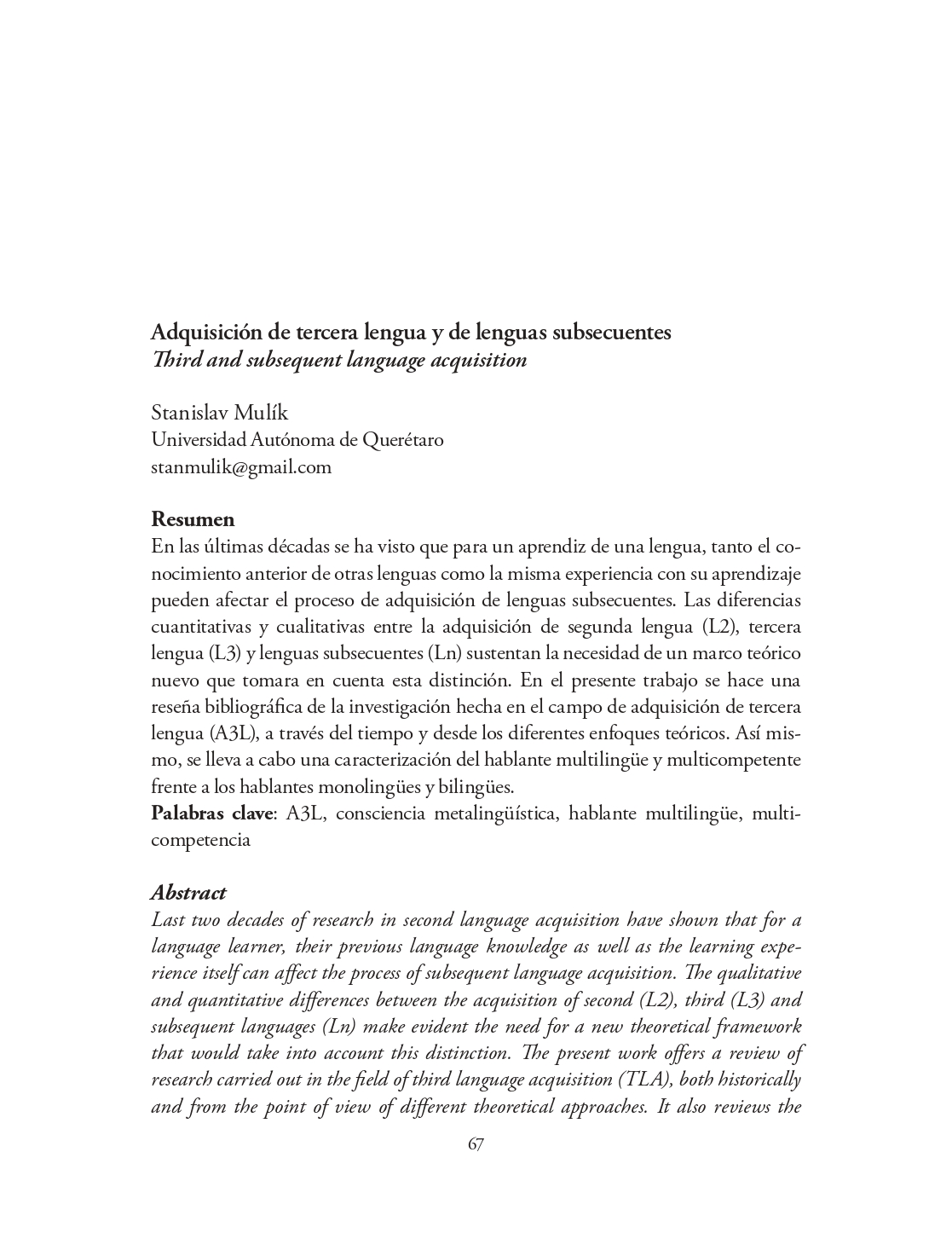Abstract
Last two decades of research in second language acquisition have shown that for a language learner, their previous language knowledge as well as the learning experience itself can affect the process of subsequent language acquisition. The qualitative
and quantitative differences between the acquisition of second (L2), third (L3) and subsequent languages (Ln) make evident the need for a new theoretical framework that would take into account this distinction. The present work offers a review of research carried out in the field of third language acquisition (TLA), both historically and from the point of view of different theoretical approaches. It also reviews the distinction between monolingual, bilingual and multilingual speakers, introducing
the idea of a multicompetent language learner/speaker.

This work is licensed under a Creative Commons Attribution 4.0 International License.
Copyright (c) 2018 Diseminaciones


